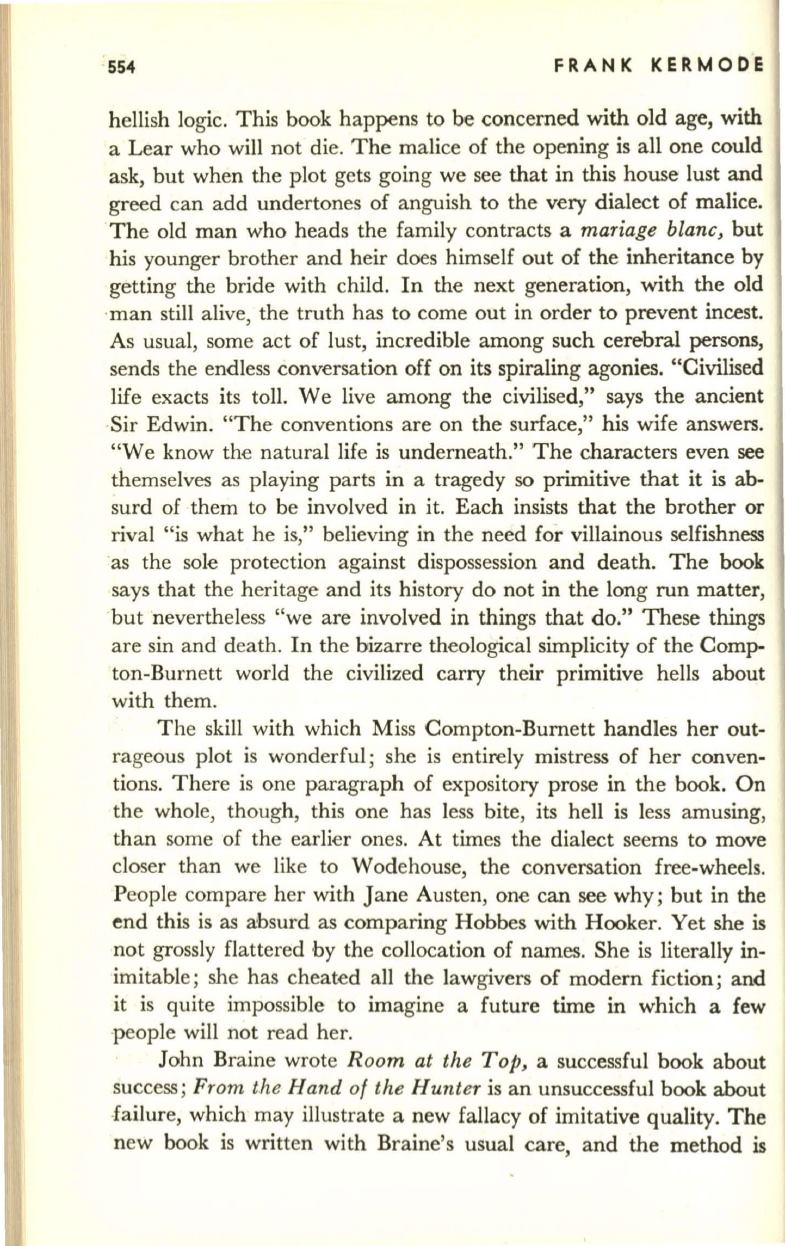
-554
FRANK KERMODE
hellish logic. This book happens to be concerned with old age, with
a Lear who will not die. The malice of the opening is all one could
ask, but when the plot gets going we see that in this house lust and
greed can add undertones of anguish to the very dialect of malice.
The old man who heads the family contracts a
mariage blanc,
but
his younger brother and heir does himself out of the inheritance by
getting the bride with child. In the next generation, with the old
-man still alive, the truth has to come out in order to prevent incest.
As usual, some act of lust, incredible among such cerebral persons,
sends the endless conversation off on its spiraling agonies. "Civilised
life exacts its toll. We live among the civilised," says the ancient
-Sir Edwin. "The conventions are on the surface," his wife answers.
"We know the natural life is underneath." The characters even see
themselves as playing parts in a tragedy so primitive that it is ab–
surd of them to be involved in it. Each insists that the brother or
rival
"is
what he is," believing in the need for villainous selfishness
as the sole protection against dispossession and death. The book
says that the heritage and its history do not in the long run matter,
but nevertheless "we are involved in things that do." These things
are sin and death. In the bizarre theological simplicity of the Comp–
ton-Burnett world the civilized carry their primitive hells about
with them.
The skill with which Miss Compton-Burnett handles her out–
rageous plot is wonderful; she is entirely mistress of her conven–
tions. There is one paragraph of expository prose in the book. On
the whole, though, this one has less bite, its hell is less amusing,
than some of the earlier ones. At times the dialect seems to move
closer than we like to Wodehouse, the conversation free-wheels.
People compare her with Jane Austen, one can see why; but in the
end this is as absurd as comparing Hobbes with Hooker. Yet she
is
not grossly flattered by the collocation of names. She is literally in–
imitable; she has cheated all the lawgivers of modem fiction; and
it is quite impossible to imagine a future time
in
which a few
-people will not read her.
John Braine wrote
Room at the Top,
a successful book about
success;
From the Hand of the Hunter
is an unsuccessful book about
-failure, which may illustrate a new fallacy of imitative quality. The
new book is written with Braine's usual care, and the method
is


